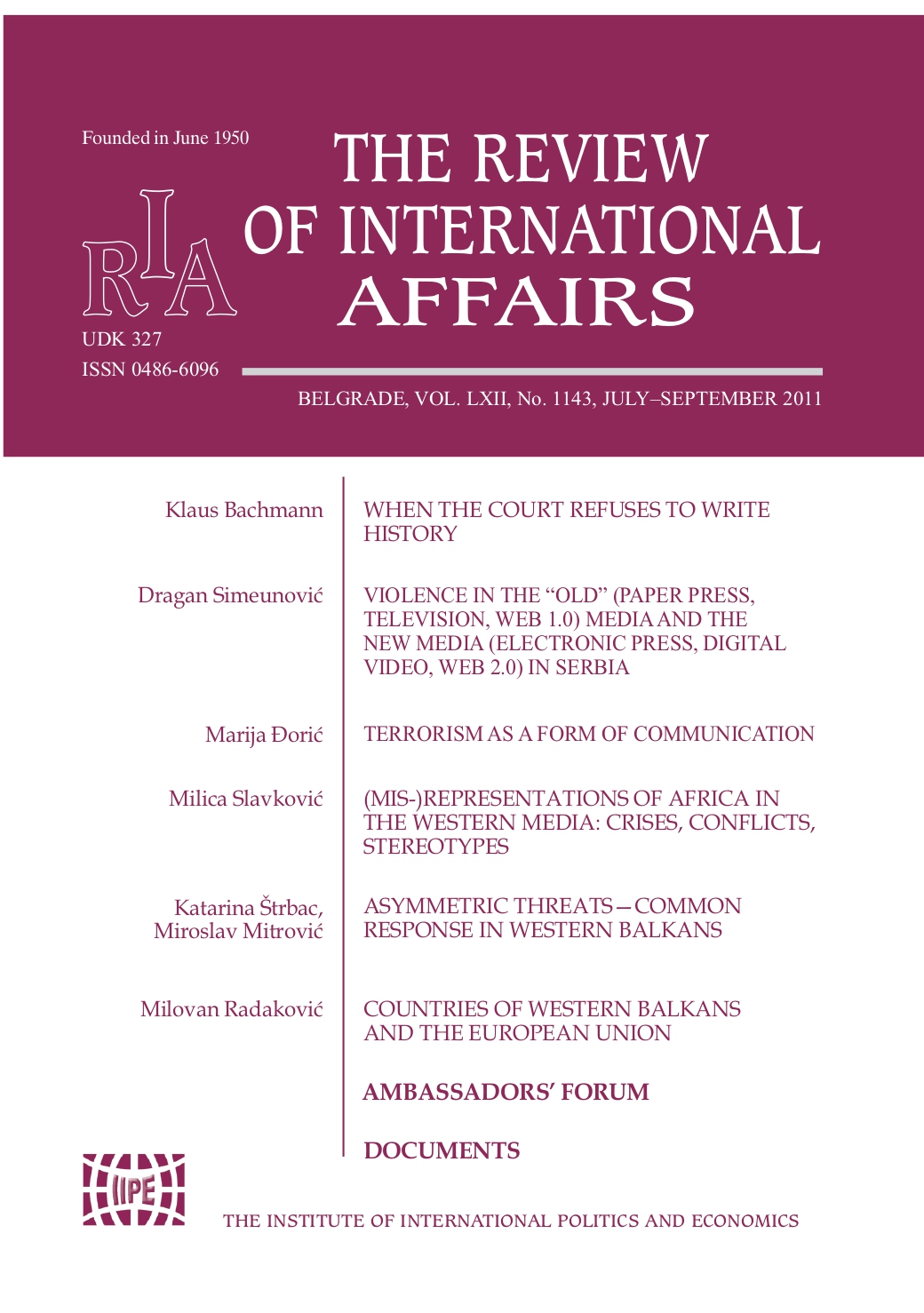Informal Institutions and Rule of Law a Comparison of Central Europe and Latin America
Informal Institutions and Rule of Law a Comparison of Central Europe and Latin America
Author(s): Bojan DobovšekSubject(s): Law, Constitution, Jurisprudence, Corruption - Transparency - Anti-Corruption
Published by: Институт за међународну политику и привреду
Keywords: rule of law; informal institutions; corruption; Central Europe; Latin America
Summary/Abstract: Paper presents research project which analyses the impact of informal institutions on the rule of law in Central Europe and Latin America. That’s why main ideas of researchers Hans-Joachim Lauth, Wolfgang Muno, Peter Thiery, Petra Guasti, Andraž Teršek and Bojan Dobovšek are presented in the paper. Project investigates the relationship between informal institutions and rule of law in new democracies of the “third wave” and it the analysis builds on a broad concept of institutions. It focus how far factual behaviour such as corruption and clientelism, defined as informal institutions, are compatible with those norm expectations related to the formal institution of a state under rule of law, or in how far they are opposed to it. The main question is, which governance options exist to reduce the power of opposed informal institutions and to foster stability and quality of rule of law and hence of democracy. The empirical part of the study compares, initially on regional level, three countries of Latin America and Central-Eastern Europe respectively according to the emergence, development and impact of their informal institutional structures. The compared cases have high (Chile, Slovenia), middle (Mexico, Poland), and low quality of rule of law (Argentina, Romania).
Journal: The Review of International Affairs
- Issue Year: LXII/2011
- Issue No: 1143
- Page Range: 119-130
- Page Count: 12
- Language: English

